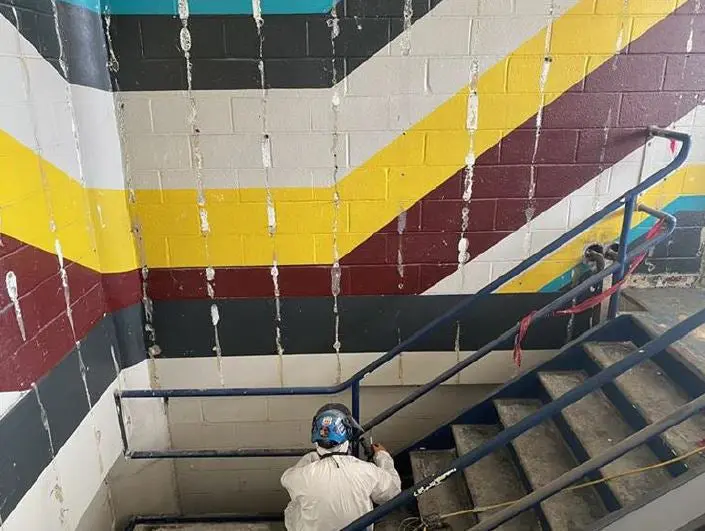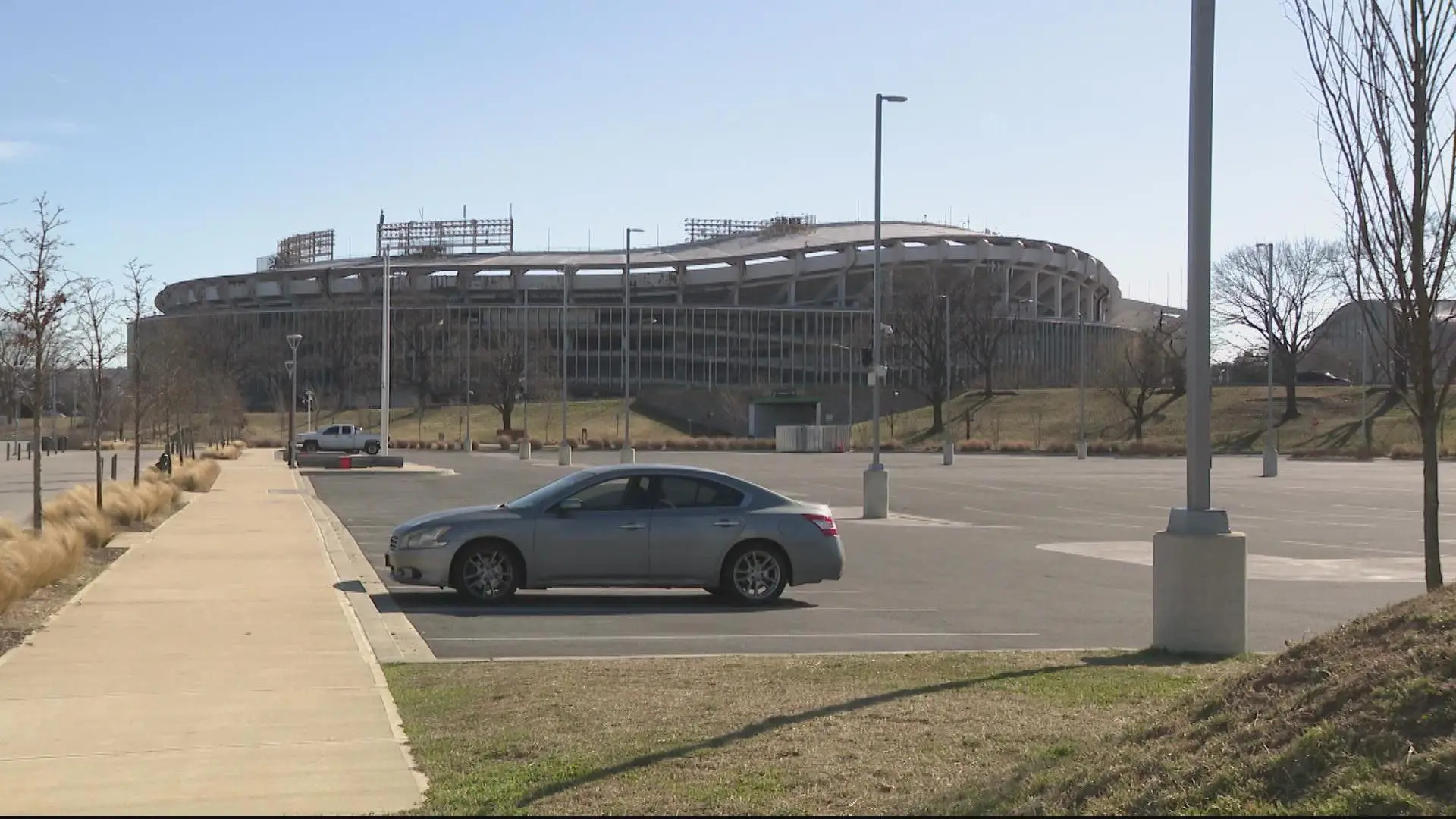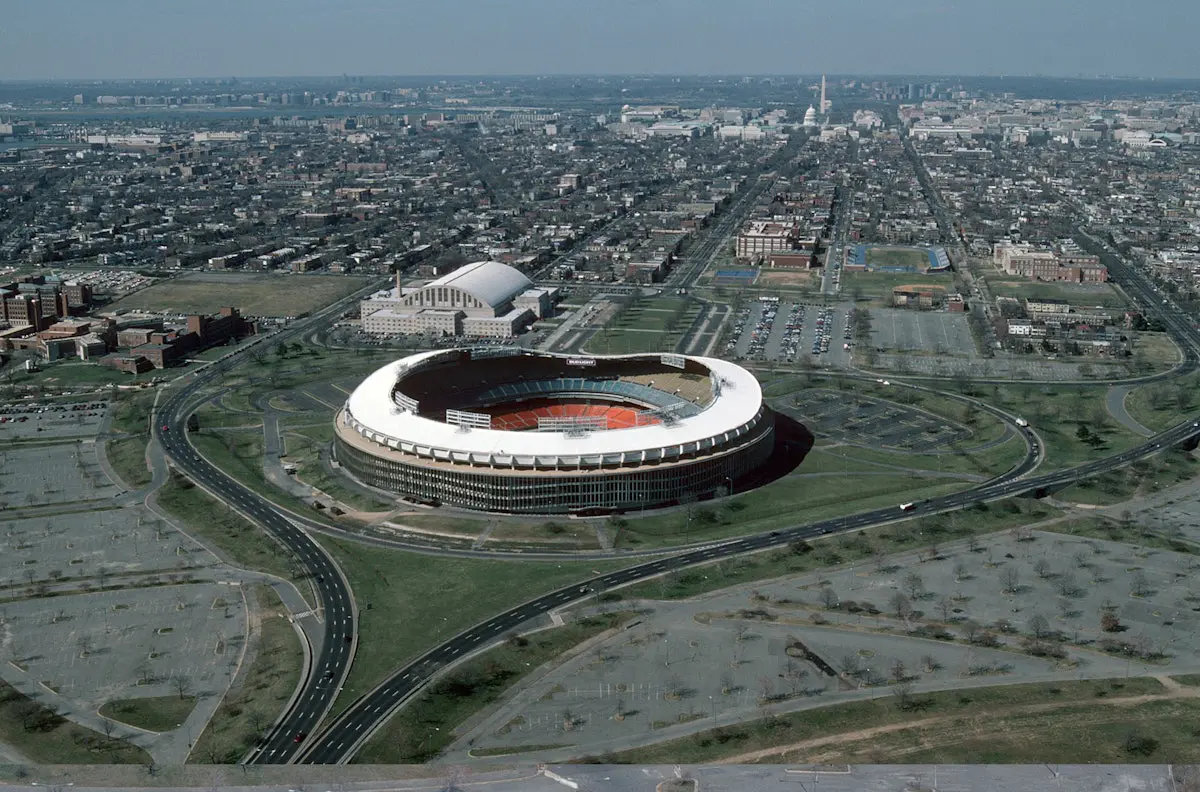The announcement regarding the much-anticipated demolition of RFK Stadium signifies a turning point in the narrative surrounding one of D.C.’s most iconic venues. The process will officially kick off in late January, igniting conversations about the stadium’s storied past and the upcoming transformation of the area. The announcement released by Events D.C. sets into motion a series of events that many residents and sports enthusiasts have been awaiting, marking the end of an era.
The Historical Significance of RFK Stadium
RFK Stadium, short for Robert F. Kennedy Memorial Stadium, opened its gates in 1961, originally serving as the home for the Washington Redskins of the NFL. Over its illustrious history, the stadium has hosted countless significant events, transforming from a sports venue into a cultural icon, resonating with diverse memories for fans and citizens alike. From football games to music concerts, the stadium has been at the center of major happenings in D.C.
In fact, notable moments such as the legendary performance by the Rolling Stones in 1969 and the unforgettable live concert held by U2 in 1992 served to solidify the stadium’s status as more than just a sports facility. The sentimental place in the hearts of the local populace cannot be overstated.

Avenue for Change
As RFK Stadium prepares to see the wrecking ball, it raises numerous feelings of nostalgia and contemplation about the future.
In order to understand the importance of this demolition, it’s essential to reflect on the economic and social implications it holds for the local community. The revitalization of the RFK site is hoped to lead to new opportunities, an influx of investments, and potential jobs for locals.
Residents of D.C. are brimming with mixed emotions; sentiments of loss juxtaposed with excitement about potential development projects. Many believe that the area could be transformed into a vibrant space with parks, community centers, and perhaps even recreational facilities that could benefit the public. The vision for the future is bright, but bittersweet.
The Demolition Process: What to Expect
The demolition process itself is poised to be complex and extensive, as it encompasses various phases of the structure’s disassembly. Events D.C. has announced that structural demolition will commence with internal deconstruction, focusing first on hazardous materials being carefully removed. This crucial step ensures the safety of workers and residents alike. Various phases of the demolition are anticipated, which will unfold over time.
Following internal demolition, which may also include the removal of certain cladding and exterior materials, the final stages are projected to align with a revitalization plan for the stadium’s surrounding area. Events D.C. has assured residents that all environmental concerns will be closely monitored throughout the process to mitigate any potential negative impacts from the demolition.

The Timeline
Expected to begin in late January, the demolition will follow a structured timeline as Events D.C. has laid out key phases. The initial work involves not only the removal of hazardous materials but also evaluating the structural integrity of the stadium for safe disassembly.
As the project progresses, visible changes will begin to reflect the area’s transformation. Funding for the demolition has been cleared through several legislative proposals, and support from both local and federal levels indicates a community-driven effort towards progress.
Beyond the stadium itself, a broader narrative looks at how this space could fulfill new roles serving needs of the ever-growing D.C. Metro area.
A Community Response: Diverse Opinions
The announcement to demolish RFK Stadium invites a plethora of reactions from the community. Some view it as a necessary step towards urban renewal and reinvention, while others cling tightly to the memories forged there. Stories are shared in whispers of the moments spent at the stadium, from exhilarating sporting events to unforgettable concerts.
Local fans express their gratitude towards the memories encapsulated while also voice optimism for what is to come. The community buzzes with discussions on social media platforms like Instagram and Facebook, sharing memories and expressing hopes for the new developments in the area. As the demolition date draws near, the voices of the community echo in the conversations about the evocative legacy left behind.
Recollections of the Past
Countless cherished memories differentiating generations intertwine with the fabric of the district’s identity.
The stories shared around campfires and at gatherings often highlight the emotional attachments individuals have with the site. These recountings reveal how a venue transcends its physical structure, evolving into a vessel that holds shared histories and collective experiences.b
For many locals, the RFK experience is intertwined with family traditions, connecting events such as birthdays, reunions and other milestones that carry emotional weight. The reverberations of these experiences paint a broader picture of why the demolition stirs such potent emotions among the community.
The Future Vision for RFK Stadium’s Site
The concept of hope pivots the conversation toward the future of the RFK Stadium site. There is a collective enthusiasm about what might emerge in its place. Various community input sessions and planning meetings are surfacing aspirations ranging from expansive green parks to entertainment venues that inspire creativity and social engagement.
City planners envision an inclusive environment that not only addresses the need for recreational space but also represents a sustainable urban ecosystem. For instance, play areas, sculptures, and gathering spaces are sought after for areas where both nature and recreation intertwine.

Green Spaces and Community Involvement
The overarching vision includes a significant emphasis on sustainability. Ideas for community gardens, verifiable green spaces, and even urban farms take root in discussions surrounding the transformation of the RFK site. These elements could offer local residents a platform to interact with nature, foster a sense of community, and enhance overall quality of life.
Engaging the community in the planning process will be essential. Public forums and surveys highlight the preferences of the community, allowing for diverse voices to shape the future site. Project leaders stress that making the development process collaborative fosters a sense of ownership among residents, paving the way for projects that truly resonate with those living nearby.
Challenges Ahead: Obstacles in the Demolition and Redevelopment Process
Even with clear excitement surrounds the demolition and redevelopment, it’s important to acknowledge potential challenges. As construction progresses, the city must balance nostalgia with innovation, preserving memories while also embracing the change.
Challenges may arise during the demo when navigating unforeseen structural complications and environmental regulations meant to ensure safety. Retaining key elements of history while transitioning to a new era raises various logistical and emotional concerns. This intersection of nostalgia and future aspirations may pose hurdles for developers and city planners alike.

Lessons from Other Developments
While the process can be daunting, lessons from other urban redevelopment projects may serve as meaningful guidelines. Cities across the globe have found ways to honor the past amidst progress, cultivating environments where history is unearthed rather than obliterated. From parks built incorporating historic structures to spaces dedicated to memory, concepts abound.
The challenge remains balancing pride in history while pursuing innovations that adequately serve contemporary needs. Public art installations, memorials, and tribute sites can enhance new developments while preserving the emotional resonance tied to past events.
The Final Chapter of RFK Stadium
As the final chapter of RFK Stadium draws near, a narrative intertwined with memories from an entire generation emerges, echoing across the historical skyline of Washington, D.C. The demolition process is set to unveil not merely the end of an outdated structure but rather provide the start of a vibrant era for a new, modern community space.
As this community comes together to honor the past while embracing innovation, RFK Stadium stands as a legacy—a testament to what was, and a bridge to what will be. The hopes surrounding its transition reflect the desires of a community yearning for revitalization, connection, and progress—an opportunity to shape a future that resonates and excites.
In closing, the journey toward RFK Stadium’s demolition and the subsequent redevelopment reflects society’s evolving nature—one that recalls history while aspiring for progress. There’s a shared sense of anticipation as the city prepares for what comes next amidst a backdrop laced with nostalgia.
Source: wtop.com
I’m Mikael, a 35-year-old Gossip Gravity Creator. I’m passionate about curating captivating content that sparks conversations and ignites curiosity. Join me on this exciting journey as we explore the fascinating world of gossip and trends together!



